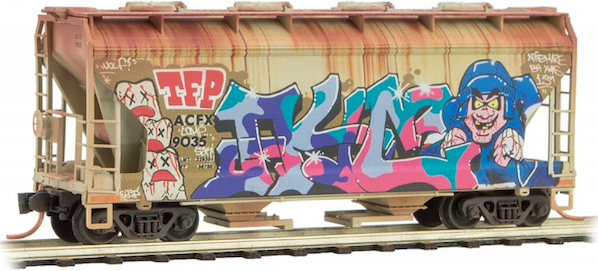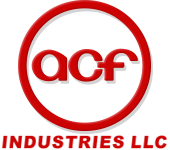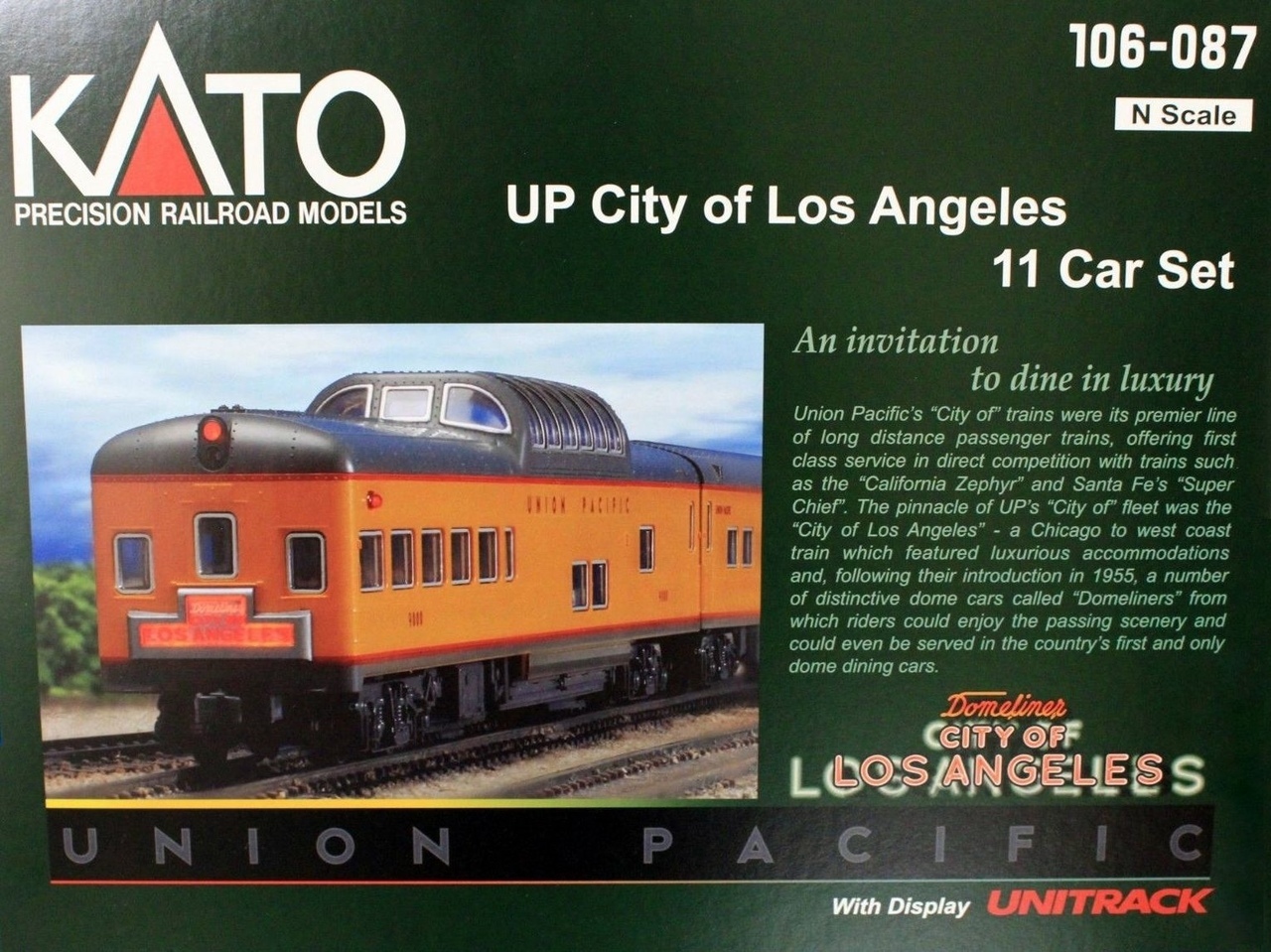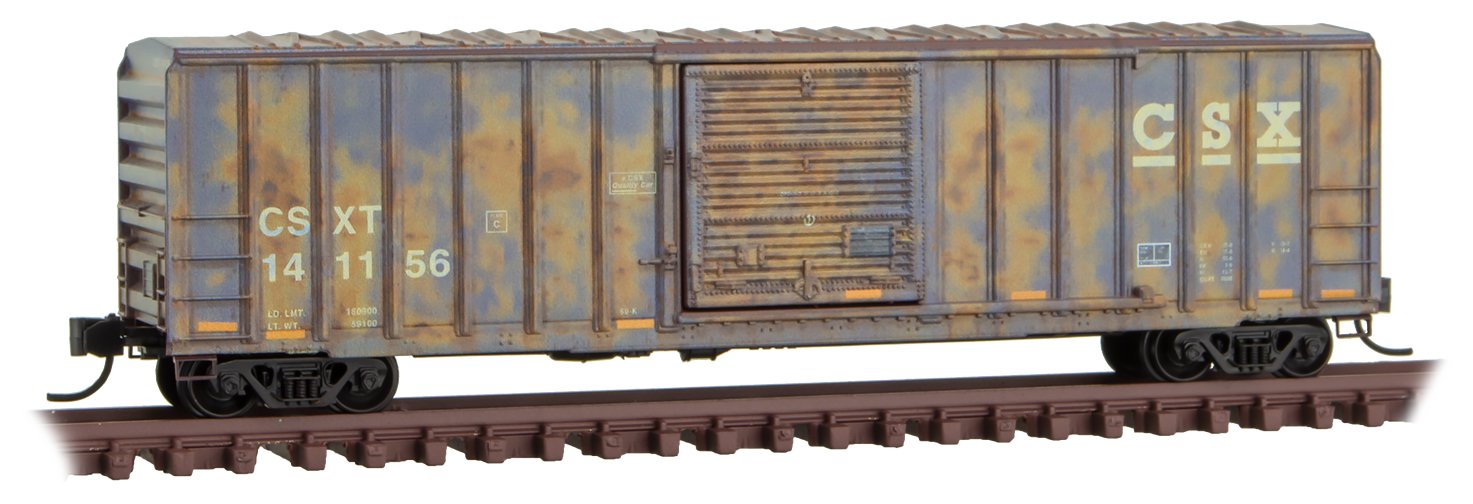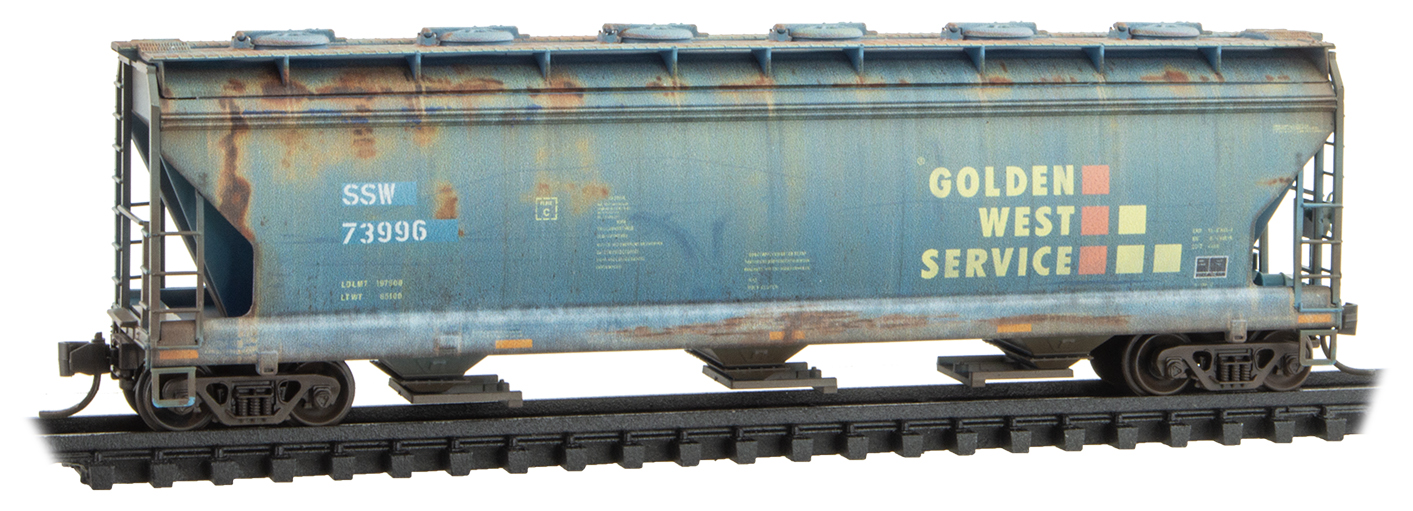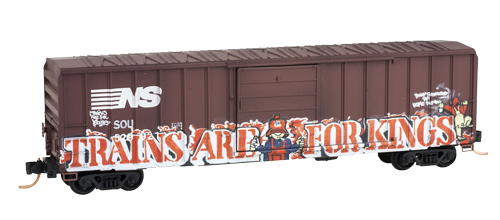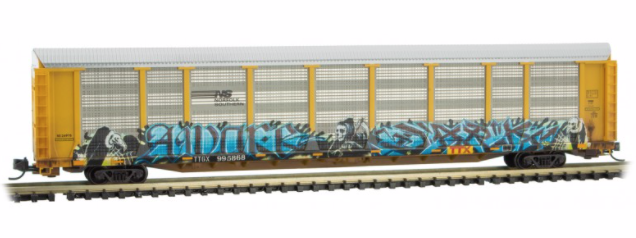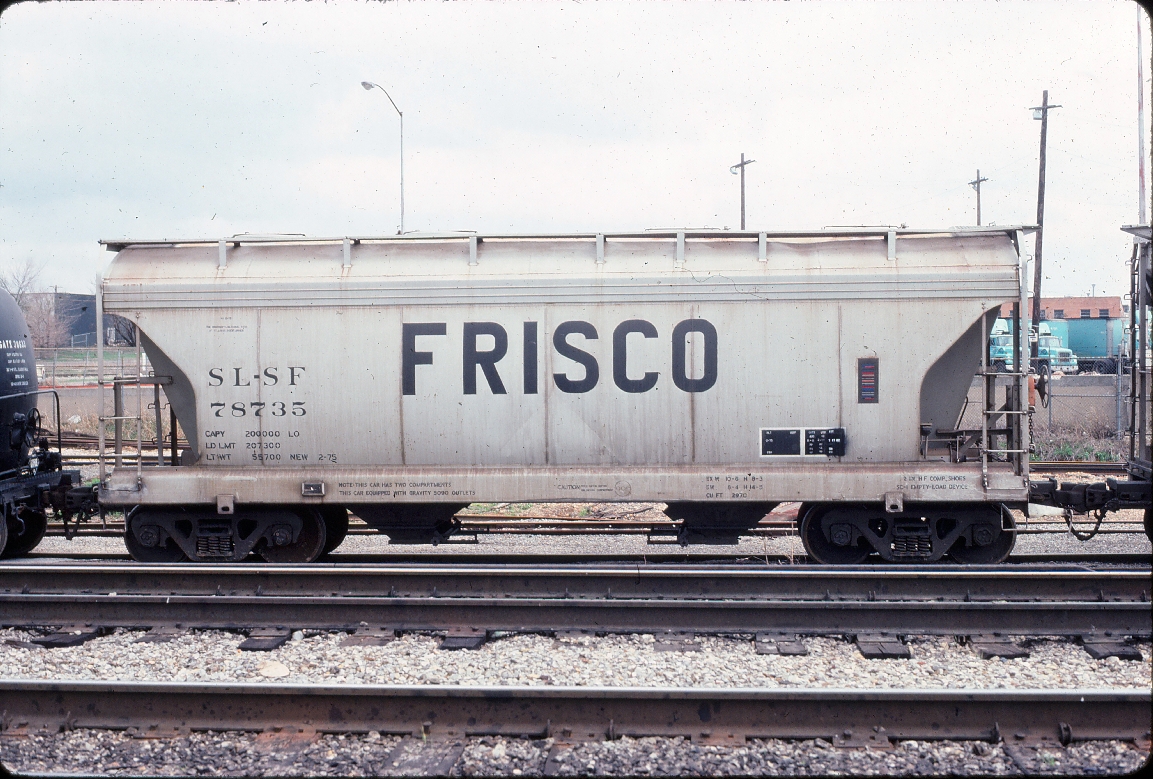Model Information: This body style models an ACF Centerflow 2980 Cubic Foot 2-Bay Covered Hopper. Specifically the model represents the version as first produced in the 1960s. The model faithfully depicts the unique design features of the car. It rides on MTL Barber Roller Bearing trucks. The car features separate roof hatches, finely molded ladders and end supports as well as two detailed gravity outlets on the bottom of the car. Even though the model has a 1960s vintage, many are still in service today in secondary service on short lines and regional railroads. Along with the excellent molded detail, the top-grade printing and painting make these cars an must-have for any N Scale hopper fleet.
Prototype History: The 2-bay covered hopper first entered service in the 1950s. The cars handle loads such as cement, sand and similar denser bulk commodities. In the 1960s, American Car and Foundry introduced the Centerflow design. The Centerflow relies on the car's rounded body to provide structural strength without the added weight of bracing, as well as making gravity unloading easier. This 2-bay car came in a 2,970-cubic foot capacity.
The first ACF covered hoppers were rib-side cars, like many others of the time. In the 1960's ACF eliminated the supporting ribs and started building what they called the Center Flow(R) hopper with a smooth, rounded side. The cars were built at several ACF plants, but the Huntington, West Virginia plant built only Center Flow cars since their inception and was the primary builder.
The first ACF covered hoppers were rib-side cars, like many others of the time. In the 1960's ACF eliminated the supporting ribs and started building what they called the Center Flow(R) hopper with a smooth, rounded side. The cars were built at several ACF plants, but the Huntington, West Virginia plant built only Center Flow cars since their inception and was the primary builder.
Road Name History: ACF Industries LLC originally known as The American Car and Foundry Company and was formed in 1899. In 1955 ACF Industries, Incorporated became the new name for The American Car and Foundry. Over the years railcar manufacturing and leasing were the major forces in ACF's economic growth and stability. ACF has weathered many changes and is still committed to the manufacture of new railcar and railcar parts and sub-assemblies. ACF Industries LLC became a successor to ACF Industries, Incorporated on May 1, 2003.
ACF Industries LLC is a leader in the manufacture and fabrication of specialty railcar parts and miscellaneous steel products. While the Company's primary purpose is to compliment the new car and repair car market, it also provides manufacturing support to other manufacturers of steel products.
ACF Industries LLC is headquartered in St. Charles, Missouri and our manufacturing facility is located in Milton, Pennsylvania.
From the company website.
ACF Industries LLC is a leader in the manufacture and fabrication of specialty railcar parts and miscellaneous steel products. While the Company's primary purpose is to compliment the new car and repair car market, it also provides manufacturing support to other manufacturers of steel products.
ACF Industries LLC is headquartered in St. Charles, Missouri and our manufacturing facility is located in Milton, Pennsylvania.
From the company website.
Brand/Importer Information: Micro-Trains is the brand name used by both Kadee Quality Products and Micro-Trains Line. For a history of the relationship between the brand and the two companies, please consult our Micro-Trains Collector's Guide.
Manufacturer Information:  Micro-Trains Line split off from Kadee Quality Products in 1990. Kadee Quality Products originally got involved in N-Scale by producing a scaled-down version of their successful HO Magne-Matic knuckle coupler system. This coupler was superior to the ubiquitous 'Rapido' style coupler due to two primary factors: superior realistic appearance and the ability to automatically uncouple when stopped over a magnet embedded in a section of track. The success of these couplers in N-Scale quickly translated to the production of trucks, wheels and in 1972 a release of ready-to-run box cars.
Micro-Trains Line split off from Kadee Quality Products in 1990. Kadee Quality Products originally got involved in N-Scale by producing a scaled-down version of their successful HO Magne-Matic knuckle coupler system. This coupler was superior to the ubiquitous 'Rapido' style coupler due to two primary factors: superior realistic appearance and the ability to automatically uncouple when stopped over a magnet embedded in a section of track. The success of these couplers in N-Scale quickly translated to the production of trucks, wheels and in 1972 a release of ready-to-run box cars.
Micro-Trains Line Co. split off from Kadee in 1990 to form a completely independent company. For this reason, products from this company can appear with labels from both enterprises. Due to the nature of production idiosyncrasies and various random factors, the rolling stock from Micro-Trains can have all sorts of interesting variations in both their packaging as well as the products themselves. When acquiring an MTL product it is very important to understand these important production variations that can greatly enhance (or decrease) the value of your purchase.
Please consult our Micro-Trains Collector's Guide

Micro-Trains Line Co. split off from Kadee in 1990 to form a completely independent company. For this reason, products from this company can appear with labels from both enterprises. Due to the nature of production idiosyncrasies and various random factors, the rolling stock from Micro-Trains can have all sorts of interesting variations in both their packaging as well as the products themselves. When acquiring an MTL product it is very important to understand these important production variations that can greatly enhance (or decrease) the value of your purchase.
Please consult our Micro-Trains Collector's Guide
Item created by: gdm on 2017-06-16 08:47:09. Last edited by George on 2024-01-26 20:29:05
If you see errors or missing data in this entry, please feel free to log in and edit it. Anyone with a Gmail account can log in instantly.
If you see errors or missing data in this entry, please feel free to log in and edit it. Anyone with a Gmail account can log in instantly.


